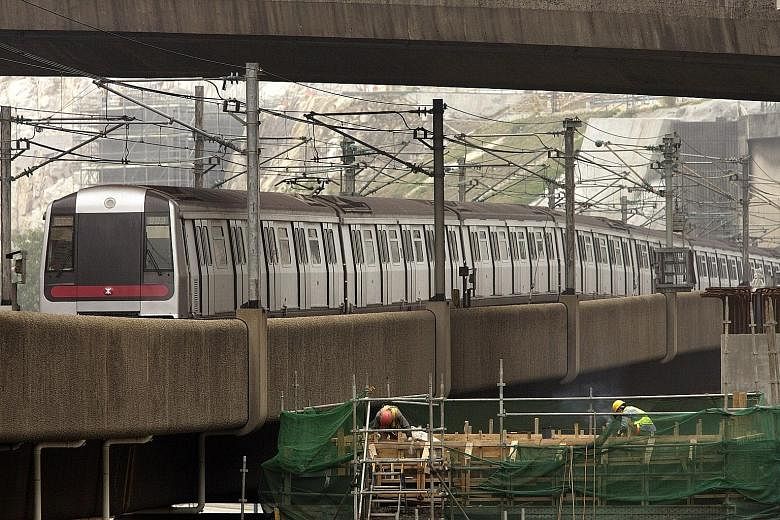Hong Kong's subway operator MTR Corporation has sought to defuse public unease that it had procured trains from the same Chinese manufacturer that supplied trains to Singapore that developed hairline cracks, reiterating that those defects pose no danger.
Meeting the media since news broke last week of Singapore's experience, MTRC managing director Jacob Kam also dismissed suggestions that the HK$6 billion (S$1 billion) contract it awarded to CSR Qingdao Sifang last year to replace 93 trains had been improper.
Questions were raised as to why MTRC had awarded the mainland manufacturer the contract, despite knowing since 2014 about the cracks in Singapore's trains. There was also concern that the tender process took nine months compared to 14 or 15 months previously.
Dr Kam said the nine-month period was sufficient, given MTRC's "extensive knowledge of market conditions and technology". It had also conducted market soundings four months prior to that.
MTRC, he stressed, adhered fully to World Trade Organisation guidelines and will continue to take reference from that and those of the Independent Commission Against Corruption of Hong Kong.
It adopts a two-envelope tender system, which means the technical specifications and tender prices submitted by applicants are put into two envelopes.
The procurement team will approve those which meet the technical requirements before finding out the prices.
"The corporation never sacrifices quality and safety for a lower price," Dr Kam said. This is also the system used in Singapore.
Dr Kam repeated the explanation MTRC had given previously on why CSR Qingdao Sifang was allowed to continue bidding - and winning - its contracts, despite cracks emerging in the trains for Singapore.
MTRC communicated with the Singapore authorities and the manufacturer, and "understood that the hairline cracks on the Singapore trains are not safety-critical and... were caused by impurities in the aluminium alloy in the car body".
The MTR train design is "totally different from that of the Singapore trains", he said. MTR trains will be made of stainless steel, and the composition of metals will be analysed.
Hong Kong news site FactWire Agency released a report last Tuesday detailing how Singapore has had to send back trains to China for repairs. Three-quarters - 26 out of 35 - of the trains made by CSR Qingdao Sifang were affected.
There is heightened concern in Hong Kong over China products, following a series of food safety scandals and the 2011 Wenzhou train collision. China-made trains in Australia and New Zealand were recently found to contain asbestos.
But experts tell The Straits Times that while China's bad reputation may be justified to some extent, the fact is that it has become the dominant player in train manufacturing in the past couple of years.
This is partly because China has spent a lot of money buying the latest technology from countries like Germany, says Dr James Wong of the University of Hong Kong.
And Dr Peter Wong, president of the Hong Kong Institution of Engineers, says: "The word 'China' certainly causes alarm. But its technology is up there."
China has abundant labour and space, which means it can deliver orders faster, he adds.
There are fewer constraints in pollution emissions and labour standards. "There is no way for others to compete," he said.

